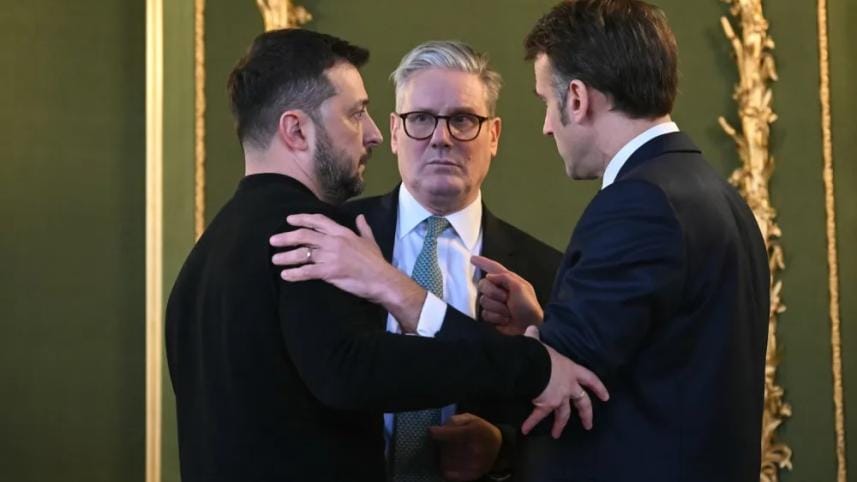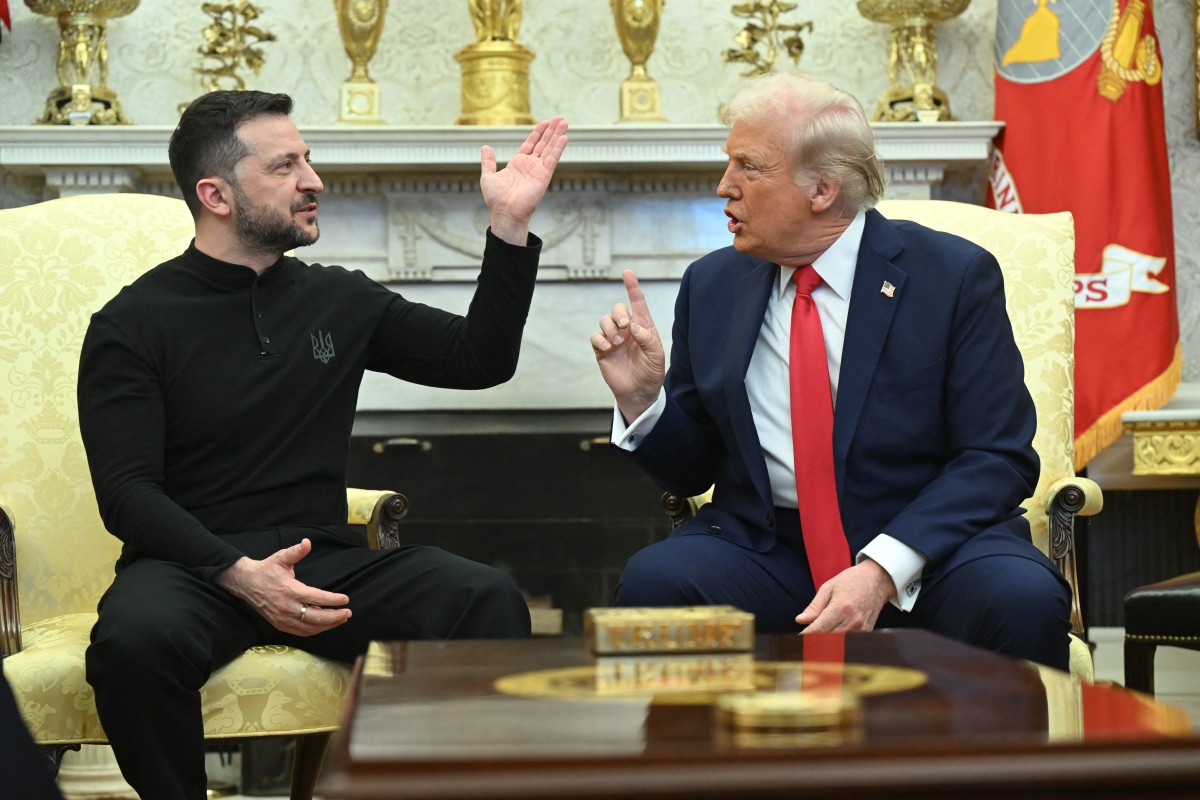US exit from Ukraine: A turning point in global power struggles

The recent developments surrounding the US' withdrawal from its active support for Ukraine are set to have profound geopolitical ramifications. This decision, following heated exchanges in the Oval Office between US President Donald Trump and Ukrainian President Zelensky, signals a pivotal shift in the trajectory of the Russia-Ukraine war and broader global power dynamics.
President Trump's assertion that US involvement in peace talks would have been advantageous to Ukraine, coupled with the abrupt disengagement, highlights Washington's prioritisation of de-escalation over indefinite military entanglement. The immediate consequences will be most deeply felt by Ukraine, which has relied heavily on Western support to sustain its resistance against Russia. The war has already demonstrated that military engagements are not solely determined by battlefield strategy but also by the ability to secure long-term logistical and intelligence support. The backbone of Ukraine's counteroffensive has been advanced US weaponry, particularly HIMARS, whose success was contingent on US cyber and satellite assistance. The cessation of such support renders these systems significantly less effective, exposing Ukraine to renewed vulnerabilities.
The impact extends beyond hardware deficiencies to a more critical challenge—morale. Ukrainian forces, who have fought fiercely in the belief that continued Western support would eventually tip the scales in their favour, now face a stark reality where the largest contributor to their military effort has effectively stepped back. The psychological toll of this shift cannot be overstated, as the perception of abandonment risks demoralising troops and complicating strategic planning. The immediate political consequence is that Kyiv's negotiating position is severely weakened. The US' prior insistence on peace talks, coupled with economic pressures and dwindling supplies, will likely push Ukraine towards a settlement on terms less favourable than previously envisioned.
For Europe, the repercussions of US' retreat are equally significant. The European Union, despite its vocal backing of Ukraine, has long remained dependent on US military capabilities, particularly in intelligence gathering, satellite data, and weapons systems. With US stepping back, the question now arises as to whether European powers can fill the void. While the United Kingdom, France, and Germany possess military resources, their ability to sustain Ukraine without US backing is highly uncertain. Internal divisions within the EU further complicate matters, as demonstrated by disputes over financial commitments and strategic direction. Recent reports of France blocking proposed funding for Ukraine illustrate these fractures, raising doubts about the bloc's ability to act cohesively. While some European states may push for increased military aid, others will likely advocate restraint, fearing the economic and security consequences of prolonged involvement.
The larger strategic fallout will be seen in Europe's defence policies. Historically reliant on US military dominance, European nations now face the necessity of bolstering their own capabilities. The recognition of vulnerabilities in air defence and missile deterrence is already prompting discussions on increased defence spending, with some assessments suggesting that Europe requires over a thousand long-range nuclear-capable missiles to establish credible deterrence against Russia. However, such military expansion is not a short-term endeavour, and economic constraints will pose significant hurdles. In the long run, the prospect of an arms race in Europe could intensify regional tensions, raising the possibility of larger conflicts rather than ensuring stability.
Russia, on the other hand, stands to gain significantly from this shift. With Ukraine's capacity to counterattack diminished, Moscow is likely to capitalise on the situation by intensifying its operations. The removal of US intelligence support further tilts the balance in Russia's favour, making it increasingly difficult for Ukraine to intercept and neutralise missile strikes. Reports of additional North Korean forces being sent to support Russian efforts underscore the Kremlin's strategy of leveraging allied resources to exert pressure on Kyiv. If Ukraine's defensive capabilities weaken substantially, the likelihood of Russia securing further territorial gains increases, placing additional strain on President Zelensky's government.
In Washington, the situation is further complicated by the unpredictability of US politics. If Donald Trump returns to power, the US approach towards Ukraine could shift even more dramatically. Trump's transactional foreign policy style suggests he may push for swift negotiations, possibly leveraging intelligence to pressure Kyiv into a settlement. The overarching implication is that Ukraine has limited options and may have to accelerate its diplomatic efforts to avoid further losses. The geopolitical repercussions extend beyond Ukraine and Russia. The US decision signals a broader recalibration of its global commitments, reflecting a shift from interventionist policies towards more calculated strategic engagement. This repositioning may erode global confidence in US commitments, reinforcing the perception that US alliances are conditional and subject to rapid change. Such a perception creates opportunities for rival powers, particularly China, to expand their influence by presenting themselves as more reliable partners in international diplomacy.
The broader takeaway from these developments is that war, particularly in the modern era, is as much about technological superiority and strategic alliances as it is about direct combat. The reliance on intelligence, cyber capabilities, and advanced military logistics has redefined the nature of warfare. The US' withdrawal from active involvement in Ukraine is not merely a shift in policy but a revelation of the structural limitations that even well-equipped nations face in sustaining prolonged conflicts. For Ukraine, the imperative now is to reassess its strategy in light of diminished external support, while Europe must confront the reality of its military dependencies. The consequences of this moment will reverberate far beyond the battlefield, shaping the geopolitical landscape for years to come.
H. M. Sabbir Hossain is a student of International Relations at the University of Chittagong.
Views expressed in this article are the author's own.
Follow The Daily Star Opinion on Facebook for the latest opinions, commentaries and analyses by experts and professionals. To contribute your article or letter to The Daily Star Opinion, see our guidelines for submission.



 For all latest news, follow The Daily Star's Google News channel.
For all latest news, follow The Daily Star's Google News channel. 

Comments